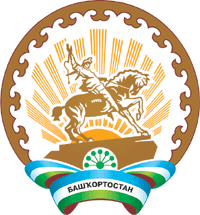Salavat Yulayev
Salavat Yulaev ( Russian Салават Юлаев , Bashkir Салауат Юлаев or Салауат Юлай улы ; born June 5, jul. / 16th June 1752 greg. In Tekejewo , Orenburg Governorate , Russian Empire , † September 26 jul. / 8. October 1800 greg. in Rogervik , Estonia Governorate ), was a Bashkir freedom fighter and poet. He is the national hero of Bashkortostan .
Life
Salawat Yulayev grew up in a village on the Siberian trade route in the Shaitan-Kudeisker area (today Salawat Rajon in Bashkortostan). His first name, derived from Arabic , stands for prayers ( ṣalawāt ) in Islam . He was a very strong boy from a young age, and at the age of 14 he went bear hunting armed with only one dagger. His poetic streak emerged early on - he wrote poems about freedom and the nature that surrounds him.
Salawat Julajew's father Julai Asnalin was already involved in the peasant uprising of 1735-1740. When the Russian authorities took repression measures against the Jaizk ( Ural ) Cossacks , the uproar was enormous, and the result was the "Great Russian Peasant Uprising" , which lasted from 1773 to 1775. Salavat Yulayev was called up in October 1773 to fight against the associations of the peasant leader Emelyan Pugachev . Instead, he ran over to Pugachev's side with the army department of the city of Sterlitamak , whose men were besieging Orenburg at the time . Julayev received from Pugachev initially the rank of colonel. He then recruited a force of over 10,000 men in northeast Bashkiria and fought successfully in the areas around the cities of Krasnoufimsk and Kungur . In May / June 1774 he was promoted by Pugachev to brigadier due to courageous and combative leadership of the troops. Salawat Yulayev continued the fighting when Pugachev suffered his final defeat and was placed under arrest. He was born on November 24th . / December 5, 1774 greg. captured in the village of Medjasch and transferred to Moscow via Ufa . In September 1775 he was sentenced to life imprisonment together with his father, who was also involved in the uprising, and imprisoned in the Estonian fortress Rogervik near the town of Paldiski . Many convicts of the peasant revolts of 1755–56 and 1773–75 sat together in this fortress. Salawat Yulayev died in custody there. In a note dated July 19 . / May 30th 1797 greg. is given about the two prisoners: "Julai Asnalin - 75 years old, decrepit, suffering from scurvy" and "Salawat Julajew - 45 years old, healthy" . Much more essential and lasting than his military work was his literary legacy, which outlasted all the reprisals that were even supposed to be enforced posthumously against Salawat Yulayev and who knew how to encourage the Bashkir people at all times. “No, Bashkirs, I am not dead!” Was a verse in one of his last poems - and the memory of him could never be erased from the memory of the Bashkirs.
Salavat Yulayev could not imagine freedom without friendship and mutual help between peoples. He united all the peoples who lived on the soil of Bashkiria in battle and fought alongside the Russian Cossack Pugachev. He awakened both the national self-confidence of the Bashkirs and the insight that there can be no peaceful life without the consideration of all peoples for one another. "We cannot argue and insult one another forever ..." he wrote in his appeal to the Russian residents in Kataw-Ivanovsk . After the defeat of the uprising, executioners led the hero through Bashkiria and flogged him in the places of his skirmishes. Catherine II obviously wanted to humiliate Salawat with this punishment, to arouse contempt for him in the people, but she only achieved the opposite: Salawat also earned the fame of a martyr . After realizing this, she did everything possible to get the rebel from the minds of his compatriots. The Bashkirs were forbidden for all time to give their children his name; any memory of him and his further fate should be stopped.
Today a city, a district, many squares, streets and parks, cultural institutions and the ice hockey team of the city of Ufa are named after him.
Most of his poems have been lost in their original form in Bashkir . Usually the translations into Russian have been handed down. Here the translator Dawletschny did particularly well, who translated several folk traditions from the area around Orenburg, all of which are said to come from Salawat Julajew, in 1868. Salawat Yulayev's poems represent the beginning of the literary history of the Bashkirs.
An excerpt from his poems
- My beloved earth,
the sweet rivers, the fields,
the birch grove, the dark valleys,
the Ural, which rises to heaven, -
I long for a dream!
-Sing about my home.
Web links
- Salawat Yulayev Museum in Malojas, Salawat Raion, Bashkortostan (Russian)
- Article Salawat Julajew in the Great Soviet Encyclopedia (BSE) , 3rd edition 1969–1978 (Russian)
| personal data | |
|---|---|
| SURNAME | Yulayev, Salawat |
| ALTERNATIVE NAMES | Salavat Julaev |
| BRIEF DESCRIPTION | Bashkir freedom fighter and poet, national hero of Bashkortostan |
| DATE OF BIRTH | June 16, 1752 |
| PLACE OF BIRTH | Tekejewo |
| DATE OF DEATH | October 8, 1800 |
| Place of death | Rogervik |
